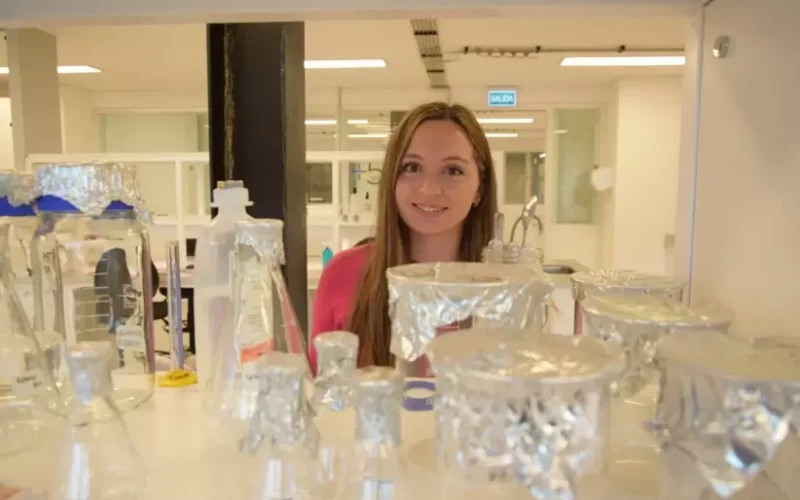This interview is the eighth in a series spotlighting the ten winners of the WeXchange Women STEMpreneurs Competition 2024. WeXchange is an initiative of the IDB Lab, the innovation and venture arm of the Inter-American Development Bank, to unlock growth opportunities for women entrepreneurs in STEM in Latin America and the Caribbean.
In this conversation, we speak with Julieta Luz Porta Co-Founder and CEO of SphereBio.
SphereBio is at the forefront of biotech innovation, tackling some of the biggest challenges in healthcare. By combining cutting-edge technology like nano vehicles and AI, they aim to revolutionize cancer treatment. Founded by a team of experts, SphereBio is not only advancing science but also redefining the integration of health and technology with a mission to save lives.
From Mendoza to Biotech
I am an engineer with a business management specialization from the University of St. Gallen. Back when Mendoza’s startup scene was just starting to grow, I got involved in startup contests, read up on entrepreneurship, and explored different fields. Winning the NASA Space Apps Challenge pushed me toward venture capital and deep tech. I went on to work as a Business Developer in a few startups, which eventually led me to SphereBio.
Bridging the gap between health and technology
Every year, millions of people lose their lives to cancer. Current therapies are still failing to provide an effective and lasting treatment for the disease and 90% of the therapies fail in clinical trials and never reach the market. SphereBio addresses this with nano vehicles, called oncospheres, which deliver messages inside cells training them to generate specific responses to recognize and kill the elusive cancer cells. Our first focus is a cancer vaccine using this technology, but its potential extends to other diseases.
SphereBio was founded by three experts: Guido Nicolás Molina, PhD in Biological Chemistry, an expert delivering molecules into cells; Martin Guerrero, PhD in Biological Sciences, and a cancer expert; and myself, responsible for business strategy, overseeing the scientific team, fundraising, and operations.
Leveraging AI to stay ahead in biotech
Biotech is evolving rapidly, with personalized therapies emerging. The combination of AI, bioinformatics, gene editing, and biotechnology opens up new ways to tackle diseases. But one of the biggest challenges is integrating these technologies with strong ethics and professionalism—especially when lives are on the line.
As a startup, we can adapt quickly, our team of PhDs and doctors rigorously reviews scientific literature to stay at the forefront. We have world-class advisors and our Sphere Engine AI algorithm which designs tools to help deliver treatments into cells. This algorithm evolves with new data, leveraging the latest advancements.
Regulatory protocols are still emerging, so we focus on proving our technology’s safety and effectiveness.
Next steps for SphereBio
Personalized vaccines are gaining momentum, with the MIT Technology Review describing this as a “renaissance of personalized cancer vaccines.” In 2025, we want to raise a bridge round to prepare for our seed round. We plan to relocate to the United States and collaborate with Harvard Medical School. Discussions with top universities and cancer institutes worldwide are underway to test SpherBio for other diseases. Expanding our team with additional doctors and experts is also a priority. Our ultimate goal is to prove our technology’s safety and efficacy for human use.
Stay Connected
For more information visit SphereBio’s website or contact them at [email protected].



